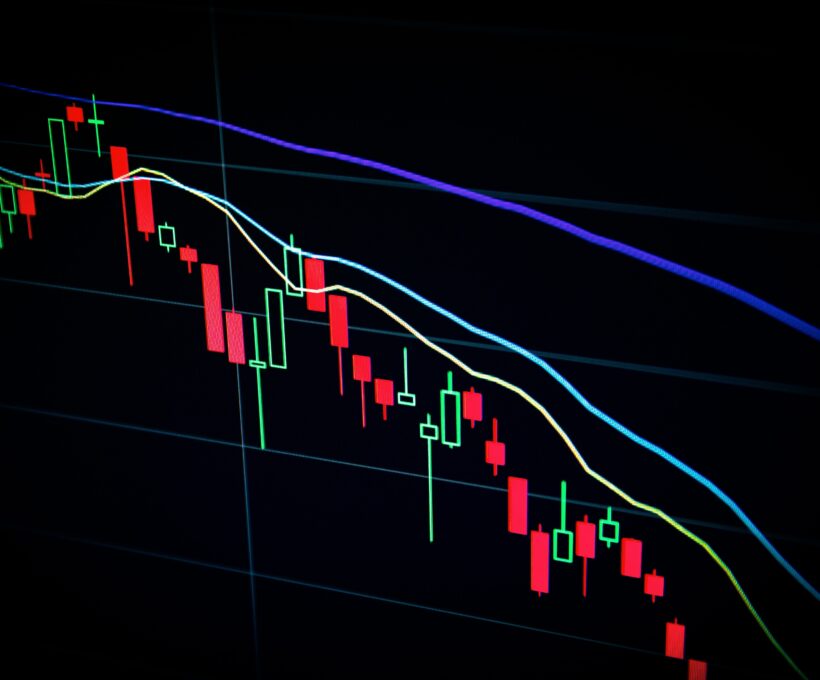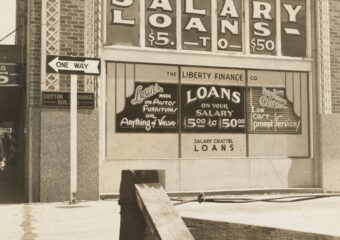In movies about financial markets, characters are continually actively trading. The action is fast-paced, opportunities need to be seized instantly, and trades almost always need to be made within minutes. The financial world seems dynamic, and all the participants seem to be speculators who are constantly buying and selling something and making millions out of it.
In films about financial markets, characters are continually actively trading. The action is fast-paced, opportunities need to be seized instantly, and trades almost always need to be made within minutes. The financial world seems dynamic, and all the participants seem to be speculators who are constantly buying and selling something and making millions out of it.
Therefore, many of us imagine that we have to be constantly buying or selling if we want to be successful in the financial markets and make a profit. We cannot just sit and wait – every minute on the markets is worth its weight in gold!
This thinking is wrong. In reality, people working in finance are doing something related to financial law all day long, making presentations and attending meetings with colleagues or clients. Buying and selling things on the markets is a small part of almost all finance professionals’ working days. Even those who do trade regularly are primarily just executing client orders rather than pursuing their strategies.
However, a film about reading contracts, making slides for presentations, and going to meetings would be boring. It is much better when the hero, after phoning someone or typing instructions on a computer screen, starts to execute orders. After a few minutes of intense conversations about different currencies and financial instruments, he tells the viewer that he has made the trade of a lifetime and made a hundred million. Certainly more intriguing.
That is why so many small investors come to the financial markets with the expectation of making money from active trading and, after a few months, come out with zero money in their accounts. As the old industry saying goes, the 90/90/90 rule applies to newcomers: ninety percent of newcomers lose ninety percent of their money in the first ninety days.
Although stock markets grow at 7-9% per year over the long term, excluding inflation, most small investors cannot boast such returns. Refer to J.P. Morgan Asset Management, the average investor generates an annual return of just 2.5%. Thus, the average investor’s return on the financial markets is closer to that of deposits than those of shares.
What is the reason for this? Active trading. According to W. Buffet, B. Graham, P. Lynch, and various studies. For example, in 2000, B. M. Barber and T. Odean’s research paper, which analyzed 66,465 actively investing households, shows unequivocally that active trading leads to lower investment returns.
This can happen because, in reality, unlike in the movies,
Active trading involves paying a lot of commissions. Commissions are significant in the long term when working on the markets - if you can, choose an intermediary that allows you to trade without them (for example, Swedbank enables you to trade on the Baltic exchanges without commissions)
Most small investors do not realize that to make money in the financial markets, they do not need to guess which financial instruments will go up and which will go down.
Small investors very often lack discipline and experience.You can even find very successful individuals who actively trade in the markets. These will usually be professionals with many years of experience in the financial markets which have been in the business for decades. But for them, it is a job, not an after-work job. It is naive and harmful to believe that someone with no experience and who spends only a few hours a day on the financial markets can consistently earn above-market returns.
And if the return from active trading is not higher than what the index offers, why trade actively? It is much more rational to invest each month in a broadly diversified fund.
The main advantage of long-term investing is that in the long term, as long as capitalism is alive, the prices of financial assets increase. Therefore, the chances of making tens of thousands of profit by investing €100 each month for 20 consecutive years are very high. That is simply the way our economic system works.
At that time, it is almost impossible to predict whether a share price will rise or fall in the next minute. The previous statement is confirmed by statistical analysis, which shows that the shorter the period, the closer the average price change over that period is to zero. It means, in effect, that predicting the direction of price changes in a short period is as realistic as predicting whether a number or a coat of arms will be flipped by tossing a coin.
Successful active traders know this, so they never engage in guessing where the price will go. Active trading professionals implement strategies that give them a substantial statistical advantage. Whereas novices who watch movies believe that a strategy should not provide a statistical advantage but should predict how the price will change.
Film finance. You don’t earn anything because you trade actively.
Combine this misconception of the purpose of an investment strategy with the popular media’s ideas about active trading, and you have an army of inexperienced investors trying to do the impossible – to keep guessing how the price will change. This way of trading is repeated hundreds and thousands of times. But this is not trading; it is gambling.
So a large proportion of small investors who consider themselves active traders are active gamblers on the markets. They chaotically made buy and sell trades based on analyzing a person who calls himself an expert, either on YouTube or on something he has read somewhere on the Internet.
Such gambling is fun and addictive and can even be very profitable for a while. But sooner or later, the fun, along with success, ends, and only the sad reality remains. The money of the active newcomers goes into the hands of the professionals, and the world reverts to the 90/90/90 rule—every time.
Successful and profitable active trading is possible. But such trading is a job for professionals with years of experience in their field. Who does not try to constantly guess how the price will change but follow strategies that give them a statistical advantage at certain moments. It allows them to manage both profit and loss and generate an optimistic mathematical hope in the long term.
Don’t be seduced by the romance of distant worlds. As depicted in many films, the world of finance is as accurate as of the world of ‘Star Wars’ or ‘Lord of the Rings. It is far better and more profitable for the vast majority of small investors to invest periodically in a diversified index-tracking fund than to try and trade actively.
Three tips:
Don't try to predict how prices will change in the short term. It is impossible.
Invest consistently, periodically, for as long as possible. Don't stop money from making you money.
Always take commissions into account. For small investments, the transaction fee may be higher than the expected annual return on that investment!



